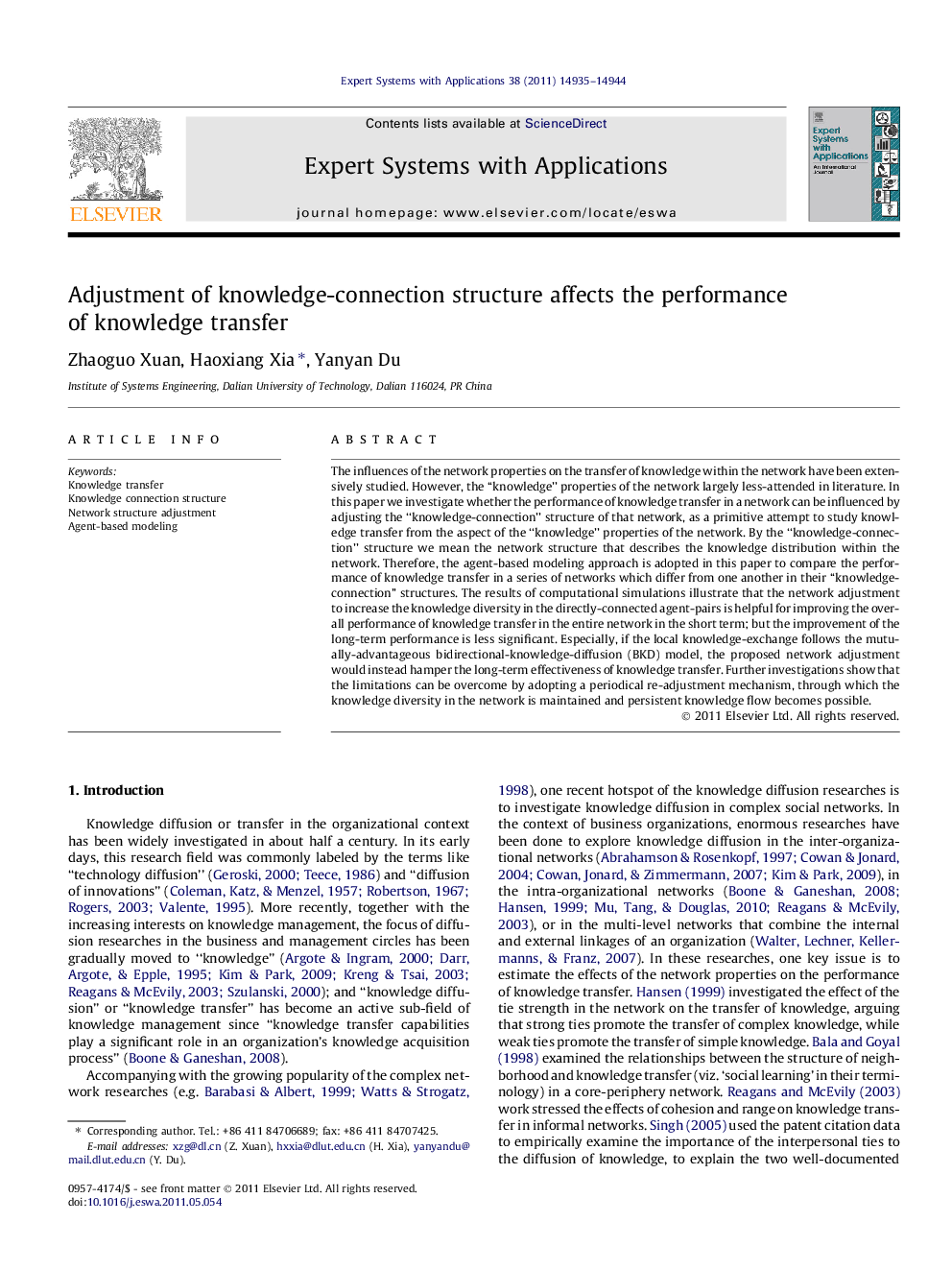| Article ID | Journal | Published Year | Pages | File Type |
|---|---|---|---|---|
| 385117 | Expert Systems with Applications | 2011 | 10 Pages |
The influences of the network properties on the transfer of knowledge within the network have been extensively studied. However, the “knowledge” properties of the network largely less-attended in literature. In this paper we investigate whether the performance of knowledge transfer in a network can be influenced by adjusting the “knowledge-connection” structure of that network, as a primitive attempt to study knowledge transfer from the aspect of the “knowledge” properties of the network. By the “knowledge-connection” structure we mean the network structure that describes the knowledge distribution within the network. Therefore, the agent-based modeling approach is adopted in this paper to compare the performance of knowledge transfer in a series of networks which differ from one another in their “knowledge-connection” structures. The results of computational simulations illustrate that the network adjustment to increase the knowledge diversity in the directly-connected agent-pairs is helpful for improving the overall performance of knowledge transfer in the entire network in the short term; but the improvement of the long-term performance is less significant. Especially, if the local knowledge-exchange follows the mutually-advantageous bidirectional-knowledge-diffusion (BKD) model, the proposed network adjustment would instead hamper the long-term effectiveness of knowledge transfer. Further investigations show that the limitations can be overcome by adopting a periodical re-adjustment mechanism, through which the knowledge diversity in the network is maintained and persistent knowledge flow becomes possible.
► The effects of the knowledge-connection structure of a social network on knowledge transfer are examined via agent-base modeling. ► Simulations show that the one-shot network adjustment to increase diversity does not ensure the long-term effectiveness of knowledge-transfer. ► The periodical network adjustment to maintain knowledge diversity between adjacent agents fosters the sustainable knowledge transfer.
